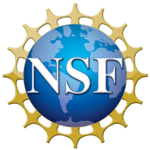Scientific Literacy
Audience
-
Collegiate
Discipline(s)
-
Applied Mathematics
-
Biology
-
Chemistry
-
Engineering
-
Math
-
Mathematics
-
Natural Science
-
Physics
Established
N/A
Individuals Served
-
0-50
Research Components
-
Mentored research experience(s)
-
Program sponsored (in-house) professional development sessions/ coursework/workshops
Involvement Practices/Activities
-
Creation Of A Safe Space/ Climate/Environment
-
Development Of Academic Sense Of Belongingness (E.G. Meetings With Doctoral Scholars, Peer Researchers, Exchanges At Academic Conferences)
-
Orientation (E.G. Reviewing Norms, Expectations, Structures, Goals, And/Or Protocols)
-
Structured Dialogues And Interactions (E.G. Lab Discussions, One-On-One Sessions, Virtual Dialogues)
Mentoring Components
-
Mentees Are Shown Academic Customs, Pitfalls, Departmental Politics And Taboos
-
Mentor Recognizes The Value Of Mentee
(I.E. Co-Authorship, Graduate School/Employment References)
-
Mentors Are Peers Of Program Participants (Near-Peer, Tiered Peer, Etc.)
-
Mentors Provide Mentees With Access To Academic Resources
(E.G. Precollegiate, Collegiate, Graduate, Postdoc, Faculty Training, Standardized Test Preparation, Writing Workshops, Research Workshops, Tenure And Promotion Information)
Empowering Activities
-
Coaching
-
Knowledge Transfer To The Community (E.G., Parents, Peers, Stakeholders)
-
Mentoring Opportunities
Past Participant Decision Making
-
Other
Evaluation Methods
-
Annual Performance Report
-
External Review/Evaluation
-
Program Survey(s)
Anticipated Outcomes
-
Completing Course(s)
-
Increasing academic skill area(s)
-
Moving to the next level of the pipeline
-
Persisting through current degree program
Key Performance Indicators
We evaluate students based on their completion of the course, a series of surveys, participation in a focus group, and persisting through the sophomore year.


 This material is based upon work partially supported by the National Science Foundation under Grant Nos. and 1818458 and 2010676. Any opinions, findings, conclusions, and recommendations expressed on this site are those of the author(s) and do not necessarily reflect the views of the National Science Foundation
This material is based upon work partially supported by the National Science Foundation under Grant Nos. and 1818458 and 2010676. Any opinions, findings, conclusions, and recommendations expressed on this site are those of the author(s) and do not necessarily reflect the views of the National Science Foundation